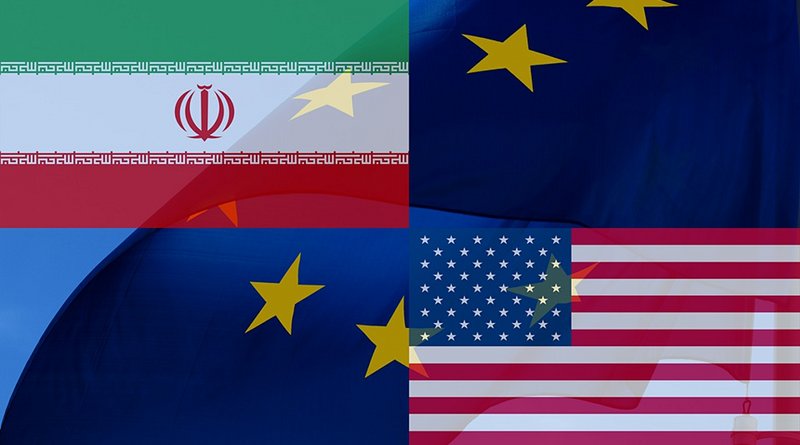The European Mirage Of ‘Iran Nuclear Agreement Plus’ – OpEd
Today, objective observers maybe excused if they detect traces of “nuclear orientalism,” that is, neo-colonial discourse, in the recent announcement of various European officials favoring a new nuclear agreement with Iran, dubbed as “nuclear agreement plus,” when they have failed to live up to their commitments under the existing one. But, sadly, there is no other viable explanation for this utterly indefensible narrative, championed by among others, Heiko Maas, Germany’s foreign minister, who ought to know better than to throw monkey wrench on the path of incoming Biden administration and its planned reembrace of the nuclear agreement, known as the JCPOA (Joint Comprehensive Plan of Action).
Sadly, instead of echoing Biden’s sentiment and providing a fresh European support for an American U-turn on a verifiably failed Iran policy under the Trump administration, Maas and a number of other German and European officials are, in fact, doing the exact opposite, by threatening new sanctions on Iran and thus threading the perverse pattern of Iran isolation promoted by Iran’s regional rivals, namely, Israel and Saudi Arabia. This is reflected in a recent joint statement by the trio of Germany, France, and England, rebuking Iran over the country’s decision to upgrade its enrichment centrifuges.
What is quite remarkable about this trio and their foreign ministers is that they can actually dispense with any sense of irony, let alone embarrassment, by falsely claiming that Europe is in good standing with the nuclear agreement and that the European parties to the JCPOA, that includes the European Union in addition to the trio, have fulfilled their own obligations under the agreement. Yet, nothing could be further from the reality and, indeed, a simple comparison of the litany of European commitments and their actual non-performance with respect to the terms of the JCPOA leaves little doubt as to the fundamental European hypocrisy run amok.
As Iran’s Foreign Minister Javad Zarif has repeatedly stated, the Europeans have not even abided by 2 percent of their JCPOA obligations, which includes a commitment to normalize trade with Iran and to lift barriers to Iran’s export of oil and gas to Europe. Yet, under the American pressure, Europe has failed to live up to its obligations, which is a failure of political will and European sovereignty, polished over by the untenable disguise of a faithful Europe, contrary to all the empirical evidence.
Consequently, it is little surprise, then, that even the International Crisis Group, often parroting the European position, contradicts itself in the latest report on Iran, by (a) justifying “some” of the post-JCPOA sanctions on Iran without bothering to elaborate, and (b) calling for the return of US to the JCPOA while, in the same breath, falling short of asking Biden to remove the Trump-era sanctions on Iran.
The incoherent report ends in the snares of its own contradiction, undercutting its own analysis, by also failing to elaborate on the concrete meanings and implications of a party re-committing itself to an international agreement abandoned by its former skipper.
Again, per the terms of JCPOA, this means the agreement by the US to undertake more than a dozen specific steps, such as with respect to Iran’s oil exports, access to foreign banks and airplane spare parts, etc., reneged on by the Trump administration.
Indeed, a close reading of both the JCPOA and the UN Security Council Resolution 2231 leads but to one conclusion, that is, the necessity of a full and comprehensive adoption and implementation of the JCPOA by all the parties, which is incumbent on both Europe and US as member states of the UN.
Another problem with the European approach is that they tend to endorse the Biden team’s position that Iran must first comply with their demands before there is any movement on the Iran sanctions.
This projected sequencing of actions/reactions is, however, untenable, due to the sheer and legitimate Iranian mistrust of the US, which has reneged on its obligations with impunity. There is as a result a huge sea of mistrust between US and Iran that in effect precludes the option of Iran taking the first steps in the hope of seeing reciprocal action by the US.
On the contrary, for a breakthrough in the nuclear negotiations to occur, there needs to be an initial US evidence of good will, above all with respect to Iran’s access to humanitarian goods in order to combat the Covid-19 pandemic, before there is any expectation of an Iranian reciprocal action. US is, after all, the guilty party here by imposing illegal and unjust sanctions on Iran, victimizing an entire population.
Neither Biden nor the Europeans ought to overlook the important fact that Iran is the aggrieved party, victimized by the Western superpower and, indirectly, by the European complicity, and it is now time to address Iran’s legitimate grievance, instead of adding salt to the injury with the talks of more punishing sanctions reserved for Iran. In a word, this is a recipe for disaster and, quite clearly, a non-starter.

